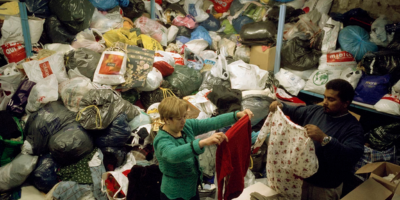When clearing out a home, office, or job site, many people are surprised to learn that not everything labeled as “junk” actually belongs in the trash. Some items are perfectly reusable, others recyclable, and some must be disposed of properly due to safety or environmental regulations. Understanding the difference between donation and disposal is the key to making better decisions during any junk removal process.
Junk Rescue AZ has built its reputation not just on efficient hauling, but on ethical practices that prioritize responsible sorting. By evaluating each load for its donation, recycling, or disposal potential, the team minimizes landfill waste and maximizes community impact. Here’s a closer look at how that process works—and why it matters.
Explore the full range of services offered.
What Can Be Donated?
Donating gently used items extends their lifecycle and supports people and organizations in need. When sorting through items during a cleanout, Junk Rescue AZ identifies pieces that still have value and coordinates donations to local nonprofits, thrift stores, shelters, and community centers.
Commonly Donated Items Include:
- Furniture: Chairs, tables, dressers, and sofas that are still in usable condition.
- Appliances: Working refrigerators, ovens, microwaves, and laundry machines.
- Clothing and Linens: Clean and wearable clothes, towels, blankets, and curtains.
- Toys and Books: Especially those in good shape, without missing pieces or significant damage.
- Home Goods: Lamps, dishes, cookware, and storage containers.
Every item donated is one less piece of waste in a landfill and one more resource for someone in need. These donations also support the operations of nonprofit organizations that sell second-hand goods to fund their services.
When Does Disposal Become Necessary?
While donation is the ideal outcome, not all items meet the criteria. Items that are broken, heavily stained, unsafe, or contain hazardous components typically require responsible disposal.
Items That Require Disposal Include:
- Moldy or infested furniture
- Damaged mattresses or bedding
- Old paint cans and chemicals
- Construction debris with exposed nails or sharp edges
- Broken electronics with leaking batteries or missing parts
Disposal isn’t about throwing things away carelessly—it’s about ensuring these materials are handled in ways that meet environmental and safety regulations. Junk Rescue AZ works with certified waste management partners to guarantee proper handling of all non-recyclable or non-donatable materials.
The Sorting Process: How Junk Rescue AZ Decides
When a junk pickup is scheduled, the team doesn’t simply load everything into a truck and head for the dump. Every job involves a deliberate sorting process designed to separate:
- Donatable goods
- Recyclable materials
- Non-recyclable waste
- Hazardous or regulated items
This careful sorting system helps reduce environmental impact, save space in landfills, and support local charities. It’s also more transparent for customers who want to know where their items are going and why.
Contact the team to ask about donation pickups.
Why Donation Should Come First
Beyond the environmental benefits, donation has a lasting community impact. Usable goods that would otherwise be trashed are instead redirected to people experiencing hardship, families starting over, and organizations running on limited budgets.
Junk Rescue AZ prioritizes donation because:
- It reduces waste at the source
- It keeps items in use longer
- It supports the local economy
- It gives customers peace of mind knowing their items are helping others
Even better, customers don’t have to lift a finger to make it happen. The team handles all transportation and coordination with donation partners.
What Happens to Items That Can’t Be Donated?
Items that don’t qualify for donation are not immediately destined for the landfill. Junk Rescue AZ evaluates whether they can be recycled before defaulting to disposal.
Commonly Recycled Items:
- Electronics (e-waste)
- Scrap metal
- Appliances (working or broken)
- Cardboard and packaging
- Wood from furniture or construction sites
If an item is broken beyond repair, non-recyclable, or considered hazardous, it is safely disposed of through a certified waste management facility that adheres to environmental standards.
The Importance of Transparent Disposal Practices
Customers want to know their junk isn’t contributing to pollution or unethical dumping practices. Junk Rescue AZ maintains transparency by working only with legitimate recycling centers and waste processors. Every load is handled responsibly, ensuring no illegal or unsafe disposal occurs.
This commitment also protects customers from liability. Improper disposal—especially of items like paint, batteries, or electronics—can result in environmental fines or health hazards. Hiring a trusted junk removal team eliminates that risk.
The Environmental Payoff
The landfill isn’t the only option—and every donation or recycling effort reduces the burden on overtaxed waste systems. According to the EPA, nearly 75% of household waste can be recycled or reused, yet a large percentage still ends up in the trash.
By choosing donation and responsible disposal, Junk Rescue AZ helps:
- Lower carbon emissions from landfills
- Prevent toxic runoff from hazardous waste
- Conserve resources by reusing materials
- Reduce overall waste volume in cities
This proactive approach plays a small but vital role in shaping a more sustainable future.
Final Thoughts
Understanding the difference between donation and disposal isn’t just about getting rid of junk—it’s about being intentional with what’s no longer needed. Whether cleaning out a garage, upgrading office furniture, or renovating a home, people now have more eco-conscious options than ever before.
Junk Rescue AZ stands out by taking the time to sort, donate, recycle, and only dispose of items when absolutely necessary. The result is a junk removal process that’s cleaner, greener, and more responsible at every step.

